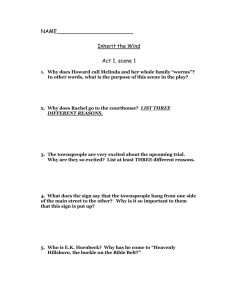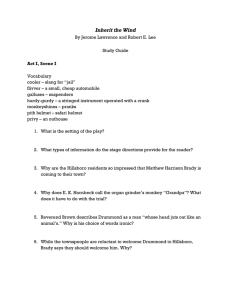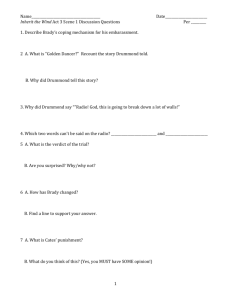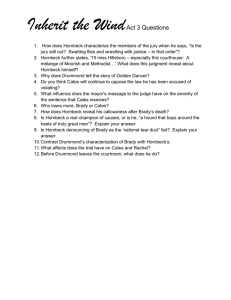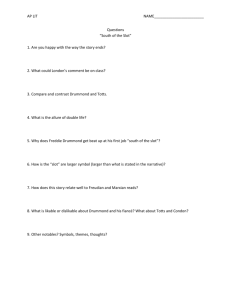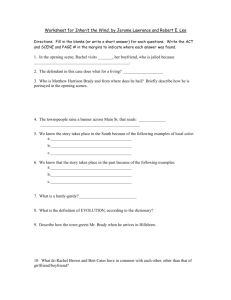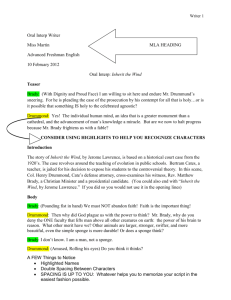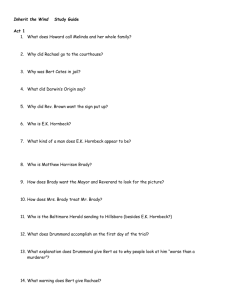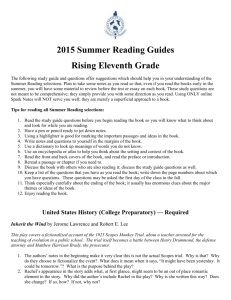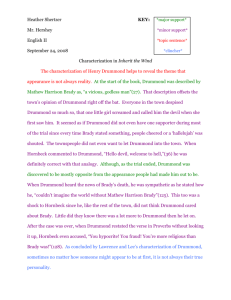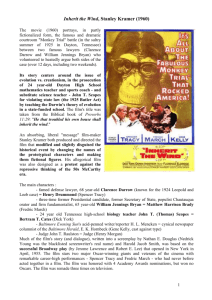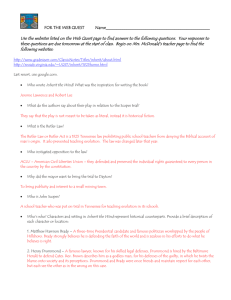Inherit the Wind – review guide
advertisement
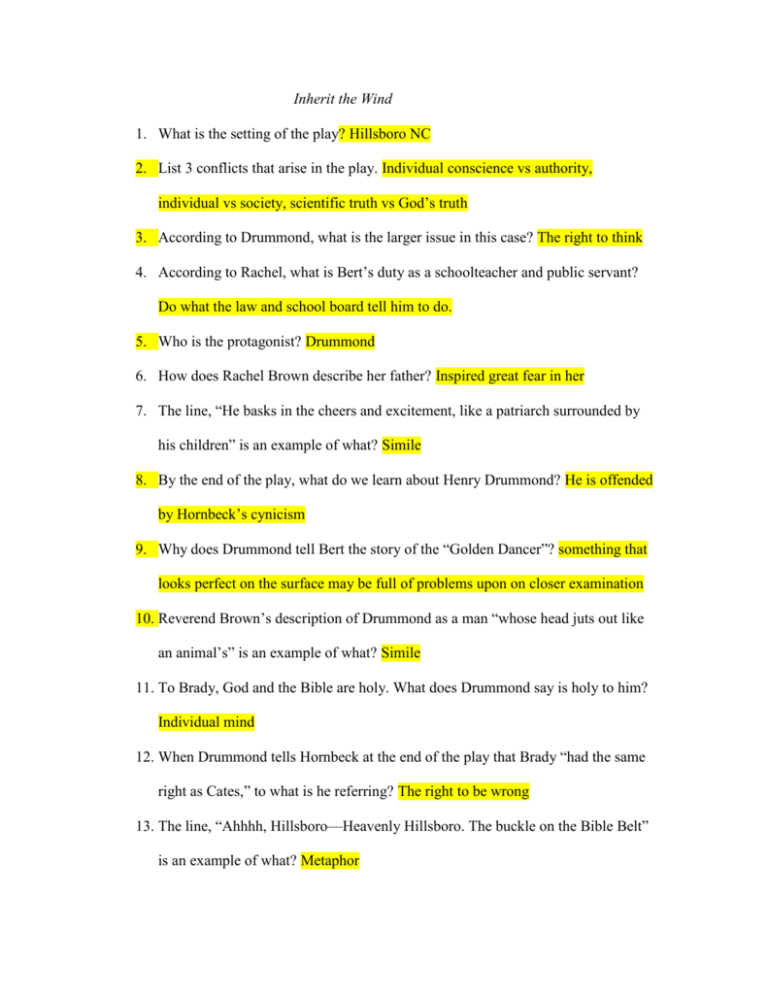
Inherit the Wind 1. What is the setting of the play? Hillsboro NC 2. List 3 conflicts that arise in the play. Individual conscience vs authority, individual vs society, scientific truth vs God’s truth 3. According to Drummond, what is the larger issue in this case? The right to think 4. According to Rachel, what is Bert’s duty as a schoolteacher and public servant? Do what the law and school board tell him to do. 5. Who is the protagonist? Drummond 6. How does Rachel Brown describe her father? Inspired great fear in her 7. The line, “He basks in the cheers and excitement, like a patriarch surrounded by his children” is an example of what? Simile 8. By the end of the play, what do we learn about Henry Drummond? He is offended by Hornbeck’s cynicism 9. Why does Drummond tell Bert the story of the “Golden Dancer”? something that looks perfect on the surface may be full of problems upon on closer examination 10. Reverend Brown’s description of Drummond as a man “whose head juts out like an animal’s” is an example of what? Simile 11. To Brady, God and the Bible are holy. What does Drummond say is holy to him? Individual mind 12. When Drummond tells Hornbeck at the end of the play that Brady “had the same right as Cates,” to what is he referring? The right to be wrong 13. The line, “Ahhhh, Hillsboro—Heavenly Hillsboro. The buckle on the Bible Belt” is an example of what? Metaphor 14. What will most readers infer about the judge? Not impartial but inclined toward the prosecution 15. What treatment does Reverend Brown believe Cates deserves from God? Strike him down and soul suffer forever 16. What is Hornbeck’s purpose in the play? To reveal the truth through verbal irony 17. When does the case turn in favor of the defense? When Drummond corners Brady about the length of a day 18. How can Brady and Drummond’s relationship be characterized? Frustrated with each other but have respect for one another 19. After the verdict, when Hornbeck refers to the Middle Ages and the coronation of Charlemagne, what is he implying? It’s as if we have not learned anything since the Middle Ages 20. In what way does the people’s opinion of Brady change by the end of the play? They ignore him instead of praise him
